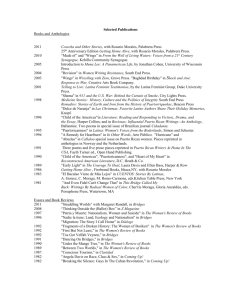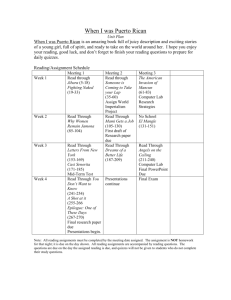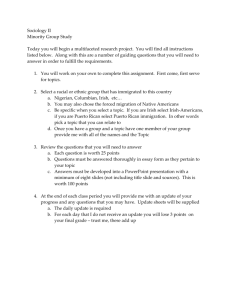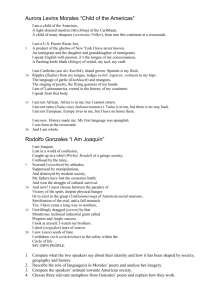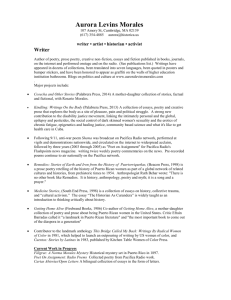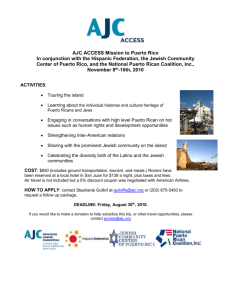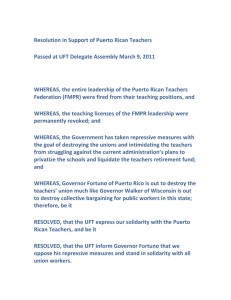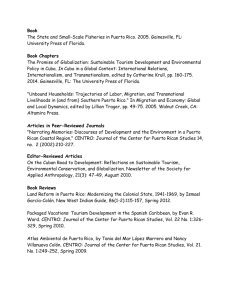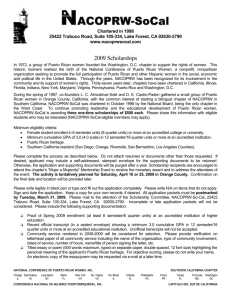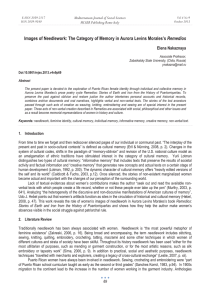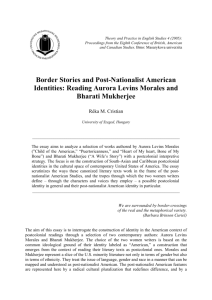Aurora Levins Morales (1954- ) Poet, activist, historian Aurora
advertisement
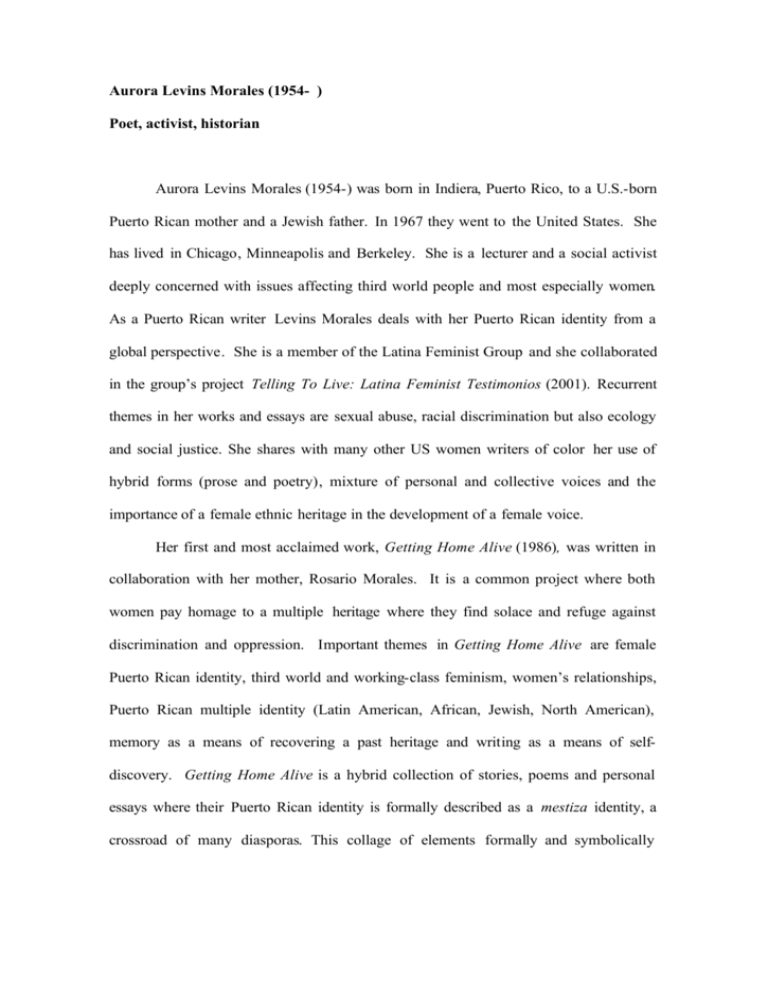
Aurora Levins Morales (1954- ) Poet, activist, historian Aurora Levins Morales (1954-) was born in Indiera, Puerto Rico, to a U.S.-born Puerto Rican mother and a Jewish father. In 1967 they went to the United States. She has lived in Chicago, Minneapolis and Berkeley. She is a lecturer and a social activist deeply concerned with issues affecting third world people and most especially women. As a Puerto Rican writer Levins Morales deals with her Puerto Rican identity from a global perspective. She is a member of the Latina Feminist Group and she collaborated in the group’s project Telling To Live: Latina Feminist Testimonios (2001). Recurrent themes in her works and essays are sexual abuse, racial discrimination but also ecology and social justice. She shares with many other US women writers of color her use of hybrid forms (prose and poetry), mixture of personal and collective voices and the importance of a female ethnic heritage in the development of a female voice. Her first and most acclaimed work, Getting Home Alive (1986), was written in collaboration with her mother, Rosario Morales. It is a common project where both women pay homage to a multiple heritage where they find solace and refuge against discrimination and oppression. Important themes in Getting Home Alive are female Puerto Rican identity, third world and working-class feminism, women’s relationships, Puerto Rican multiple identity (Latin American, African, Jewish, North American), memory as a means of recovering a past heritage and writing as a means of selfdiscovery. Getting Home Alive is a hybrid collection of stories, poems and personal essays where their Puerto Rican identity is formally described as a mestiza identity, a crossroad of many diasporas. This collage of elements formally and symbolically represent a multiple identity which is perfectly defined in poems like “Child of the Américas”: I am not African. Africa is in me, but I cannot return. I am not taína. Taíno is in me, but there is no way back. I am not European. Europe lives in me, but I have no home there. I am new. History made me. My first language was spanglish. I was born at the crossroads And I am whole. (50) For Aurora and her mother diversity is a source of power and home is everywhere. Hybridity is described as a multiple heritage recovered by means of stories of female ancestors, of island landscapes, sounds and smells, and it is also described formally through the mixture of voices and of genres, prose and poetry. For both women living in the borderlands describes the richness of a culturally diverse heritage. More recent works by Aurora Levins Morales are Remedios: Stories of Earth and Iron from the History of Puertorriqueñas (1998) y Medicine Stories: History, Culture and the Politics of Integrity (1998). Remedios is a fascinating collection of prose and poetry with retells the history of Puerto Rican people through the lives of Puerto Rican women’s ancestors from the old and the new world. Comments on healing herbs are accompanied by stories who rewrite History telling the lives of a long line of women who have been silenced for centuries. Some of the stories tell about pain, suffering abuse but most of them recover female figures who transmit strength and resistance. Medicine Stories is a collection of personal essays grouped in five sections. The section Historian as Curandera” deals with history and the struggle over who has the authority to tell the story of other people; “Speaking in Tongues” concentrate on the power of language and how privilege language is used to silence other people’s authentic stories; “Raíces” explores with the realities and myths of identity politics and the complexity of Puerto Rican identity; “Privilege and loss” discusses different aspects of privilege and the costs of accepting it and the final section, “Integrity,” is about living a politics of integrity, about commitment, activism and the integration of collective and individual liberation. The whole collection calls for a revision of painful personal and collective memories and history as a way to heal all wounds. Aurora Levins Morales’ poem on September 11 events, “Shema,” has been widely spread on the Internet as her most recent acclaimed piece of work. Works Cited Levins Morales, Aurora and Rosario Morales. Getting Home Alive. New York: Firebrand Books, 1986 Levins Morales, Aurora. Remedios: Stories of Earth and Iron from the History of Puertorriqueñas. Boston: Beacon Press, 1998. ------. Medicine Stories: History, Culture and the Politics of Integrity. Cambridge, MA: South End Press, 1998. Further Reading Benmayor, Rina. "Getting Home Alive: The Politics of Multiple Identity." The Americas Review 17.3-4: 71-77. López Sprinfield, Consuelo. “Mestizaje in the Mother-Daughter Autobiography of Rosario Morales and Aurora Levins Morales.” A/b: Auto/biography Studies ?: 303-15. McCracken, Ellen. New Latina Narrative: The Feminine Space of Postmodern Ethnicity. Tucson: University of Arizona Press, 1999 Rojas, Lourdes. "Latinas at the Crossroads: An Affirmation of Life in Rosario Morales and Aurora Levins Morales's Getting Home Alive." In Breaking Boundaries: Latina Writing and Critical Reading, edited by A. Horno-Delgado, E. Ortega, N. Scott, and N. Saporta-Sternbach.. Amherst: University of Massachusetts Press, 1989, 166-77. Antonia Domínguez Miguela University of Huelva, Spain
